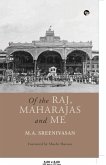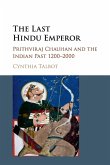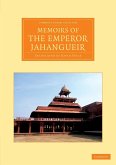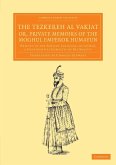Ruler Ashoka, well known as Ashoka the Incomparable, administered the Mauryan Realm in India from 273 BCE to 232 BCE. His reign isn't simply a section in old history; it is an immortal adventure of change, sympathy, and moral authority that proceeds to motivate and direct people, pioneers, and social orders in the cutting edge world. At the center of Ashoka's inheritance is his striking process from a savage victor to a caring and moral ruler. He saw a significant defining moment during the Skirmish of Kalinga in 261 BCE, where the enormous misery and death toll deeply impacted him. It was in the fallout of this severe fight that Ashoka went through an individual arousing, understanding the vanity of viciousness and success. Ashoka's change drove him to embrace the lessons of Buddhism, which advocate peacefulness, sympathy, and the quest for inward harmony. He freely communicated his regret for the experiencing brought about by his prior successes through his stone and point of support proclamations, starting a trend for pioneers to recognize and correct their previous mishaps. His rule was portrayed by moral administration directed by standards of sympathy, equity, and social government assistance. Ashoka's obligation to dharma, his moral and moral obligation, turned into the foundation of his standard. He executed an extensive variety of social government assistance programs, including the development of clinics and backing for minimized networks, stressing the prosperity, everything being equal. Ashoka's ecological awareness and endeavors to safeguard nature and creatures offer immortal examples for tending to the environmental difficulties of the cutting edge world. His acknowledgment of the interconnectedness of all life fills in as a sign of the requirement for comprehensive ways to deal with natural supportability. In a time set apart by strict variety and periodic struggles, Ashoka's advancement of strict resilience and interfaith exchange remains as an encouraging sign. His heritage supports regard for different convictions and works on, encouraging quiet conjunction. Ashoka's rule likewise highlights the getting through force of moral administration. His enduring obligation to peacefulness, empathy, and virtues fills in as an update that pioneers ought to focus on standards over private increase, showing others how its done for the prosperity of their residents. Today, Ashoka's standards are exceptionally pertinent in tending to contemporary worldwide difficulties. His heritage provokes us to focus on moral administration, civil rights, natural supportability, interfaith congruity, and humane authority. It urges us to take a stab at an all the more, empathetic, and amicable world, where pioneers and people the same add to a more promising time to come. Head Ashoka's extraordinary excursion from champion to empathetic ruler offers an immortal guide for moral initiative and an update that the quest for equity, sympathy, and moral direct can shape a superior world, rising above the limits of time and culture. His heritage perseveres as a getting through wellspring of motivation for the individuals who try to have a constructive outcome on the world.







![THE HISTORICAL & TECHNICAL SCIENCES FOR DISCOVERY OF THE SECRET TOMB OF EMPEROR CHINGGIS QA'AN FOUNDER OF THE MONGOL EMPIRE [including] A GEOPHYSICAL ANALYSIS OF MOUNTAIN X THE HISTORICAL & TECHNICAL SCIENCES FOR DISCOVERY OF THE SECRET TOMB OF EMPEROR CHINGGIS QA'AN FOUNDER OF THE MONGOL EMPIRE [including] A GEOPHYSICAL ANALYSIS OF MOUNTAIN X](https://bilder.buecher.de/produkte/63/63213/63213773m.jpg)
